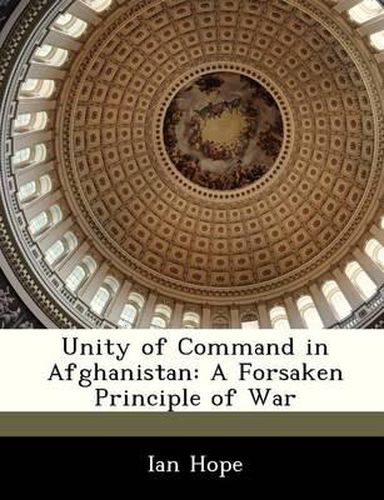Readings Newsletter
Become a Readings Member to make your shopping experience even easier.
Sign in or sign up for free!
You’re not far away from qualifying for FREE standard shipping within Australia
You’ve qualified for FREE standard shipping within Australia
The cart is loading…






This Carlisle Paper discusses the traditional importance of unity of command in American doctrine and practice from World War I until now, and how this principle has been forsaken in the evolution of military command for Afghanistan. It examines the unprecedented departure from the principle of unity of command in Afghanistan in 2006, when Combined Forces Command-Afghanistan passed control of the ground fight to the International Security Assistance Force, and operations became split between several unified or \“supreme\” commanders in charge of U.S. Central Command, the North Atlantic Treaty Organization, and U.S. Special Operations Command. It argues for a renewal of understanding of the importance of unity of command, and recommends that the United States revert to the application of this principle by amending the Unified Command Plan to invest one \“supreme commander\” with responsibility for the current Operation ENDURING FREEDOM Joint Operations Area.
$9.00 standard shipping within Australia
FREE standard shipping within Australia for orders over $100.00
Express & International shipping calculated at checkout
Stock availability can be subject to change without notice. We recommend calling the shop or contacting our online team to check availability of low stock items. Please see our Shopping Online page for more details.
This Carlisle Paper discusses the traditional importance of unity of command in American doctrine and practice from World War I until now, and how this principle has been forsaken in the evolution of military command for Afghanistan. It examines the unprecedented departure from the principle of unity of command in Afghanistan in 2006, when Combined Forces Command-Afghanistan passed control of the ground fight to the International Security Assistance Force, and operations became split between several unified or \“supreme\” commanders in charge of U.S. Central Command, the North Atlantic Treaty Organization, and U.S. Special Operations Command. It argues for a renewal of understanding of the importance of unity of command, and recommends that the United States revert to the application of this principle by amending the Unified Command Plan to invest one \“supreme commander\” with responsibility for the current Operation ENDURING FREEDOM Joint Operations Area.